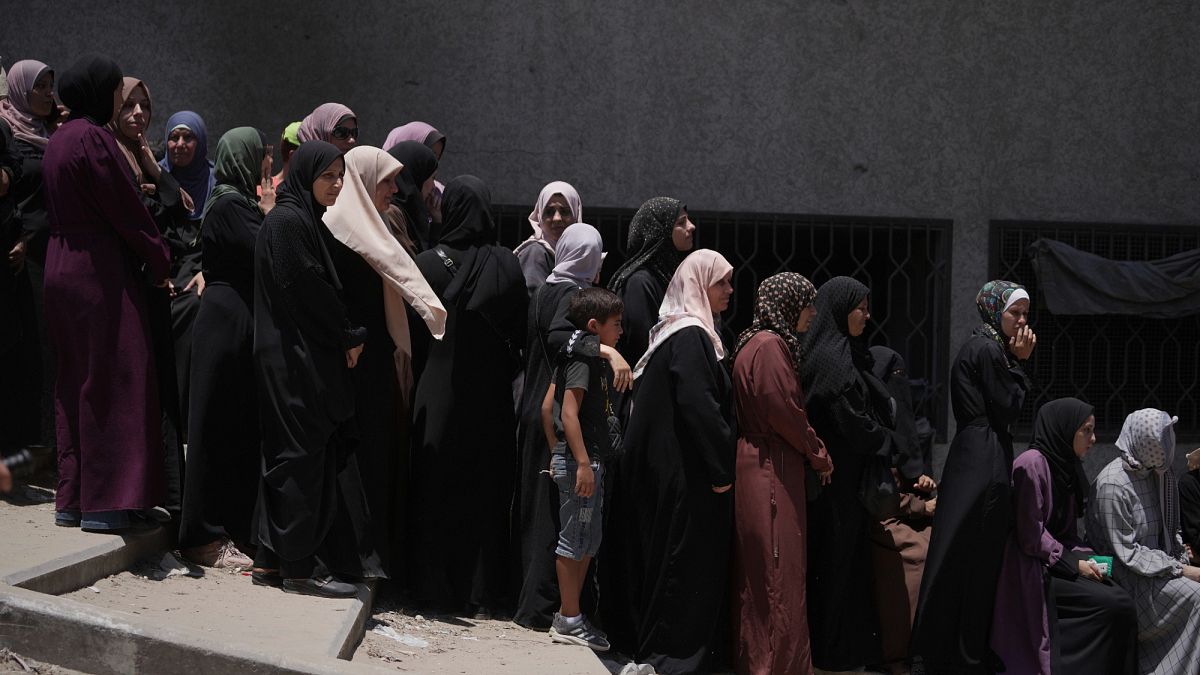

In a world that often seems embroiled in turmoil, several regions currently face significant challenges, each with its own unique context and implications. Today, we explore the recent developments in Gaza and Ukraine, and touch upon the geopolitical shifts in Iran, Georgia, and Turkey.
Escalation in Gaza
The situation in Gaza has seen an escalation, with recent Israeli military actions leading to the loss of many lives. Health officials report that an airstrike targeting a water collection point resulted in the death of at least 10 individuals, among them six children. Additionally, a separate attack on a residence took nine more lives. These incidents add to a death toll that now surpasses 58,000 in this long-standing conflict.
The Israeli military has acknowledged a miscalculation, describing the aim of targeting a militant but attributing the civilian casualties to a technical error in the munition. Palestinian health authorities and witnesses describe scenes of chaos as civilians attempted to access essential resources like water, further highlighting the humanitarian concerns in the region.
Meanwhile, the European Union has expressed increasing unease about the conflict’s impact, considering potential diplomatic measures in response. The ongoing tensions between Israel and Palestine remain a complex and multifaceted issue that continues to draw attention and calls for peace from the international community.
Conflict in Ukraine
The conflict between Russia and Ukraine remains at the forefront of global attention. Ukrainian President Volodymyr Zelenskyy has called for stronger international sanctions in light of Russia’s record-breaking aerial assault, which involved 741 drones and missiles. This escalation challenges Russia’s claims of seeking a peaceful resolution and raises concerns about the prospects of diplomacy in the region.
Zelenskyy’s appeal to Western leaders underscores the urgency of mitigating further violence and finding a peaceful way forward. The ongoing situation demands a careful and measured response from the global community to prevent further loss and promote stability in Eastern Europe.
Geopolitical Shifts and Concerns
In the Middle East, Iran has released information on an Israeli attack on a national security meeting that allegedly injured high-ranking officials. This disclosure adds another layer of complexity to an already tense regional landscape, marked by contested narratives and strategic interests.
In Georgia, European foreign ministers have voiced their concerns over what they perceive as a deteriorating situation, particularly in the context of the country’s aspirations to join the European Union. This signals European involvement in ensuring stability and fostering closer ties through diplomatic engagement.
In a more positive development, Turkey has witnessed a significant move towards peace, as the Kurdish militant group PKK begins disarmament. Turkish President Recep Tayyip Erdogan heralded this as a pivotal moment in the nation’s history, signifying potential progress towards a more harmonious future in the region.
Global Reflections
In reflecting on these global events, it becomes clear that the path to peace and stability requires concerted efforts from all involved parties along with robust support from the international community. The issues at hand are deeply rooted and multifaceted, necessitating diplomatic patience and understanding.
As the world watches, hopes remain that the involved governments and organizations will navigate these challenges with the wisdom and commitment needed to transform conflict zones into areas where communities can thrive peacefully. All eyes remain on the unfolding situations, awaiting resolutions that embody compassion, mutual respect, and coexistence.
Source: {link}
